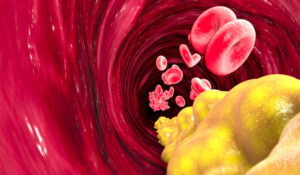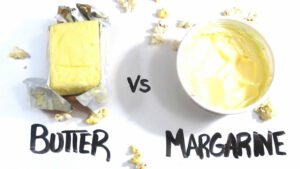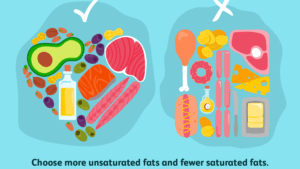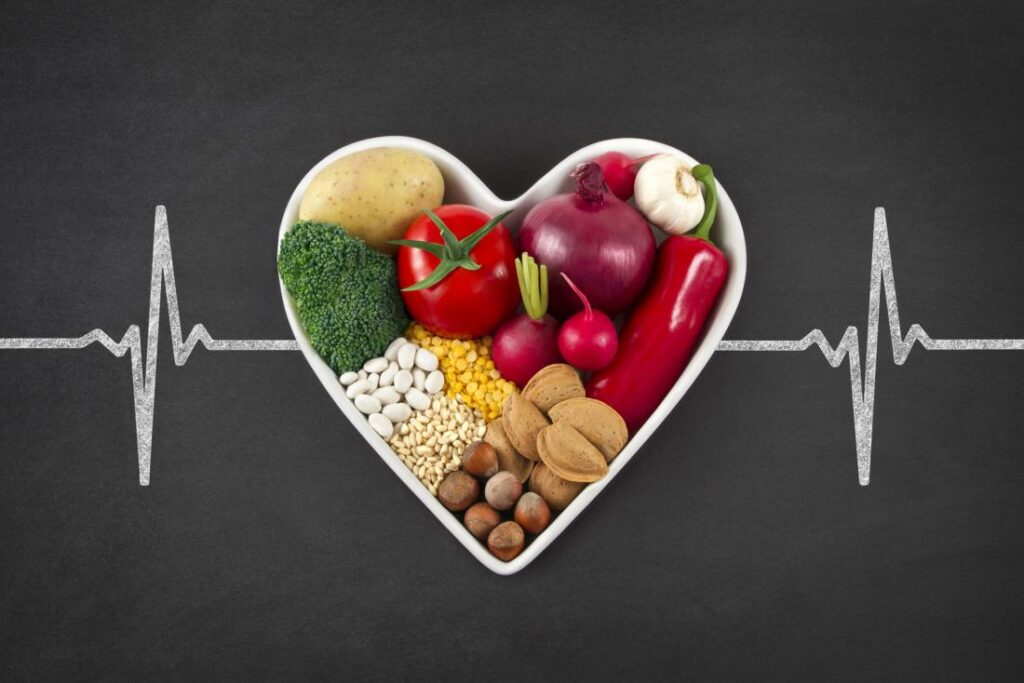There are a lot of myths out there about fat and cholesterol. Some people believe that eating fatty foods will make them gain weight, and others think that cholesterol is the root of all heart disease. In this blog post, we will debunk these myths and teach you the truth about these two substances. We will also provide some tips on how to keep your heart healthy!
Contents
- 1 Defining Fat And Cholesterol
- 2 10 Popular Myths About Fat And Cholesterol
- 2.1 Myth # one: All fats are bad for you.
- 2.2 Myth # two: Eating fat will make you fat.
- 2.3 Myth # three: Saturated fats are the worst for you.
- 2.4 Myth # four: Cholesterol is bad for you.
- 2.5 Myth # five: Eggs are bad for you.
- 2.6 Myth # six: You should avoid all fatty foods.
- 2.7 Myth # seven: Margarine is better for you than butter.
- 2.8 Myth # eight: Trans fats are the worst for you.
- 2.9 Myth # nine: You should avoid all fried foods.
- 2.10 Myth # ten: Eating fat will clog your arteries.
- 3 Tips On How To Keep Your Heart Healthy
- 4 Conclusion
Defining Fat And Cholesterol
 Fat is a type of nutrient found in food. It is one of the three macronutrients, along with protein and carbohydrates. Fat is essential for many functions in the body, including insulation, energy storage, and vitamin absorption. There are three main types of fat:
Fat is a type of nutrient found in food. It is one of the three macronutrients, along with protein and carbohydrates. Fat is essential for many functions in the body, including insulation, energy storage, and vitamin absorption. There are three main types of fat:
- Saturated fat: Saturated fat is that which is solid at room temperature. It is found in animal products such as butter, cheese, and red meat. It is also found in coconut oil and palm oil.
- Unsaturated fat: Unsaturated fat is that which is liquid at room temperature. It is found in plant oils such as olive oil, canola oil, and peanut oil.
- Trans fat: Trans fat is a type of fat that is created when manufacturers add hydrogen to vegetable oil in order to make it solid at room temperature. This process is called “hydrogenation.” Trans fat is found in many processed foods, such as cookies, crackers, and margarine.
Cholesterol is a type of lipid (fat) found in the blood. It is necessary for the body to function properly. However, too much cholesterol can lead to heart disease. Cholesterol also helps to make hormones and vitamin D. There are two main types of cholesterol:
- HDL cholesterol: HDL stands for “high-density lipoprotein.” This type of cholesterol is often called “good” cholesterol because it helps to remove LDL cholesterol from the blood.
- LDL cholesterol: LDL stands for “low-density lipoprotein.” This type of cholesterol is often called “bad” cholesterol because it can build up on the walls of arteries and cause heart disease.
Healthy Sources Of Fat And Cholesterol
- Avocados
- Nuts
- Fatty fish (salmon, tuna)
- Seeds
- Plant oils (olive, coconut)
- Butter from grass-fed cows
- Eggs (in moderation)
Unhealthy Sources Of Fat And Cholesterol
- Processed meats (bacon, sausage)
- Full-fat dairy products (whole milk, cheese, ice cream)
- Hydrogenated oils (trans fats)
- Sugary foods and drinks
10 Popular Myths About Fat And Cholesterol
There are a lot of myths out there about fat and cholesterol which makes it hard to know what’s true and what’s not. Let’s debunk some of the most popular myths:
Myth # one: All fats are bad for you.
This is not true! As we mentioned before, there are different types of fat. Saturated and trans fats are the “bad” fats because they can raise your LDL cholesterol levels. Unsaturated fats are the “good” fats because they can help to lower your LDL cholesterol levels. It’s important to remember that all fats are high in calories, so you should eat them in moderation.
Myth # two: Eating fat will make you fat.
 This is also not true! Fat is essential for many functions in the body. It is also a type of nutrient that your body needs in order to function properly. However, all fats are high in calories. This means that if you eat more fat than your body needs, you will gain weight. However, gaining weight and becoming obese are two different things. You can gain weight if you eat too many calories from any type of food, not just fat.
This is also not true! Fat is essential for many functions in the body. It is also a type of nutrient that your body needs in order to function properly. However, all fats are high in calories. This means that if you eat more fat than your body needs, you will gain weight. However, gaining weight and becoming obese are two different things. You can gain weight if you eat too many calories from any type of food, not just fat.
Myth # three: Saturated fats are the worst for you.
This myth is partially true. Saturated fats are the “bad” fats because they can raise your LDL cholesterol levels. However, not all saturated fats are created equal. Some saturated fats, such as those found in coconut oil and palm oil, can actually help to improve your HDL/LDL ratio. This means that these types of saturated fats are not as bad for you as other types of saturated fats. So, while all saturated fats are not bad for you, some are worse than others.
Myth # four: Cholesterol is bad for you.
The myth that cholesterol is bad for you is partially true. Too much cholesterol can lead to heart disease. However, cholesterol is necessary for the body to function properly. It also helps to make hormones and vitamin D. So, while too much cholesterol can be bad for you, some cholesterol is actually good for you. It’s important to remember that there are two types of cholesterol: HDL and LDL. HDL is the “good” cholesterol because it helps to remove LDL cholesterol from the blood. LDL is the “bad” cholesterol because it can build up on the walls of arteries and cause heart disease.
Myth # five: Eggs are bad for you.
This myth is also partially true. Eggs are a good source of protein and many vitamins and minerals. However, eggs are also high in cholesterol. So, if you have high cholesterol, you should limit the number of eggs you eat. You can also eat egg whites, which are a good source of protein but do not contain cholesterol. Avoid eating egg yolks, which are high in cholesterol as it may further increase your cholesterol levels.
Myth # six: You should avoid all fatty foods.
The myth that you should avoid all fatty foods is not true. Fatty foods, such as avocados and nuts, are actually good for you. This is because they contain unsaturated fats, which can help to lower your LDL cholesterol levels. Fatty fish, such as salmon and tuna, are also good for you because they contain omega-three fatty acids. These fatty acids can help to reduce inflammation in the body. So, while you should avoid saturated and trans fats, you should not avoid all fats.
Myth # seven: Margarine is better for you than butter.
 This myth is not true! Margarine is made from vegetable oils, which contain trans fats. Trans fats are the “bad” fats because they can raise your LDL cholesterol levels. Butter is made from milk, which contains saturated fats. However, not all saturated fats are bad for you. So, while margarine may be lower in saturated fat than butter, it is higher in trans fat. This means that margarine is not necessarily better for you than butter.
This myth is not true! Margarine is made from vegetable oils, which contain trans fats. Trans fats are the “bad” fats because they can raise your LDL cholesterol levels. Butter is made from milk, which contains saturated fats. However, not all saturated fats are bad for you. So, while margarine may be lower in saturated fat than butter, it is higher in trans fat. This means that margarine is not necessarily better for you than butter.
Myth # eight: Trans fats are the worst for you.
This myth is partially true. Trans fats are the “bad” fats because they can raise your LDL cholesterol levels. However, not all trans fats are created equal. Some trans fats, such as those found in margarine and vegetable oils, are worse for you than others. So, while all trans fats are not bad for you, some are worse than others. You should avoid trans fats as much as possible.
Myth # nine: You should avoid all fried foods.
The myth that you should avoid all fried foods is not true. While fried foods are high in fat, they are not necessarily bad for you. This is because the type of fat used to fry food does not have a significant impact on your LDL cholesterol levels. So, while you should limit the number of fried foods you eat, you do not need to avoid them completely. You can also choose to cook fried foods in healthier oils, such as olive oil.
Myth # ten: Eating fat will clog your arteries.
This myth is not true! Fat does not clog your arteries. Saturated and trans fats can increase your LDL cholesterol levels, but this does not mean that they will clog your arteries. LDL cholesterol is actually too large to pass through the walls of your arteries. It is the buildup of plaque, which is made up of LDL cholesterol, calcium, and other substances, that can clog your arteries. So, while you should avoid saturated and trans fats, you do not need to worry about them clogging your arteries.
I hope you found this information helpful in debunking some of the myths about fat and cholesterol. Remember, not all fats are bad for you and cholesterol is not necessarily bad for you either. So, enjoy fatty foods in moderation, and don’t worry about them clogging your arteries!
Tips On How To Keep Your Heart Healthy
While there are many myths about fat and cholesterol, there are also many ways to keep your heart healthy. Here are a few tips:
Eat a variety of fruits and vegetables
Eating a variety of fruits and vegetables has been linked to a lower risk of heart disease. Fruits and vegetables are high in fiber, which can help to reduce LDL cholesterol levels. They are also low in calories, so they can help you to maintain a healthy weight.
Choose whole grain foods over processed foods
Whole grain foods, such as oatmeal and brown rice, have been linked to a lower risk of heart disease. This is because they are high in fiber, which can help to reduce LDL cholesterol levels. Processed foods, on the other hand, are often high in sugar and saturated fat, which can increase your LDL cholesterol levels.
Limit your intake of saturated and trans fats
 As mentioned previously, saturated and trans fats can increase your LDL cholesterol levels. So, it is important to limit your intake of these types of fats. You can do this by avoiding processed foods and choosing leaner meats. You can also cook with healthy oils, such as olive oil, instead of butter or margarine.
As mentioned previously, saturated and trans fats can increase your LDL cholesterol levels. So, it is important to limit your intake of these types of fats. You can do this by avoiding processed foods and choosing leaner meats. You can also cook with healthy oils, such as olive oil, instead of butter or margarine.
Replace animal fats with vegetable oils
Animal fats, such as butter and lard, are high in saturated fat. This can increase your LDL cholesterol levels. vegetable oils, on the other hand, are high in unsaturated fat, which can help to reduce your LDL cholesterol levels. So, it is best to cook with vegetable oils instead of animal fats. You can also use olive oil as a healthy alternative to butter.
Exercise regularly
Exercise has been shown to help reduce LDL cholesterol levels. Additionally, it can help you to maintain a healthy weight, which is important for heart health. So, make sure to get at least 30 minutes of exercise every day. You can also try to add some strength training to your routine, as this can help to increase HDL cholesterol levels. You can try exercises like lifting weights or doing push-ups and sit-ups.
Quit smoking
Smoking is one of the leading causes of heart disease. So, if you smoke, it is important to quit. There are many resources available to help you quit smoking, so make sure to take advantage of them. Smoking also increases your LDL cholesterol levels, so quitting will help to reduce your risk of heart disease.
Get your cholesterol checked
It is important to get your cholesterol checked on a regular basis. This way, you can be sure that your levels are in a healthy range. A high range can increase your risk of heart disease, so it is important to be aware of your numbers. You can get your cholesterol checked by your doctor or at a local health fair. A simple blood test can give you your cholesterol numbers.
Following these tips can help you to maintain a healthy heart and avoid some of the health risks associated with high cholesterol levels. So, be sure to keep these tips in mind for a healthy heart!
Conclusion
Fats and cholesterol are an important part of a healthy diet. Don’t let the myths about fat and cholesterol scare you away from eating these essential nutrients. Fat and cholesterol are not enemies. In fact, they’re essential for good health. So go ahead and enjoy them – in moderation.
Make lifestyle changes – like eating a healthy diet and exercising regularly – to lower your cholesterol. If you have high cholesterol, talk to your doctor about ways to manage it. And remember, excess weight, smoking, and drinking too much alcohol can also contribute to high cholesterol. So if you’re concerned about your cholesterol levels, make sure to take care of your overall health.
For more suggestions and debunking of myths, check out Mantra Care. Our team of experts is here to help you get information that is reliable and trustworthy. Visit our website today for more tips on how to live a healthier life. You can also consult with a registered dietitian or nutritionist through our online nutrition counseling program if you have any questions or concerns about starting a new diet. Mantra Care is here to help you on your journey to better health!


